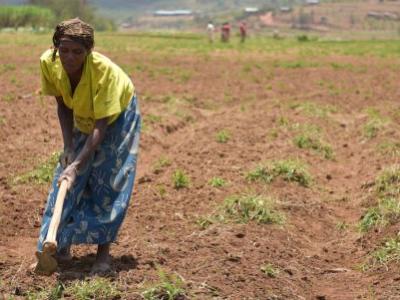As regards the global environment, Côte d'Ivoire adopted a sustainable development strategy whose main components are defined in parallel to its national plan to combat poverty. The country has undertaken a set of reforms adhering to the major thrusts recommended by UNCED in Rio in 1992 and the Agenda 21 Programme. Degraded or threatened natural environments – forests, coastal areas, fresh water bodies – are the subject of particular attention, as are the causes of their degradation, i.e. bush fires, household or industrial wastes, insufficient capacity of sewerage systems.
The Ivorian economy has always been largely dominated by agriculture which, including agro-industry, contributes over 50 percent of the GDP. The performances of this low-productivity agriculture were obtained at the cost of rapid deforestation. Mention was made, during the first half of the 1970-1980 decade, of a deforestation rate on the order of 300,000 ha/year.
Sources: Global Environment Facility Proposal: National Capacity Needs Self-Assessment for Global Environment Management (NCSA)







